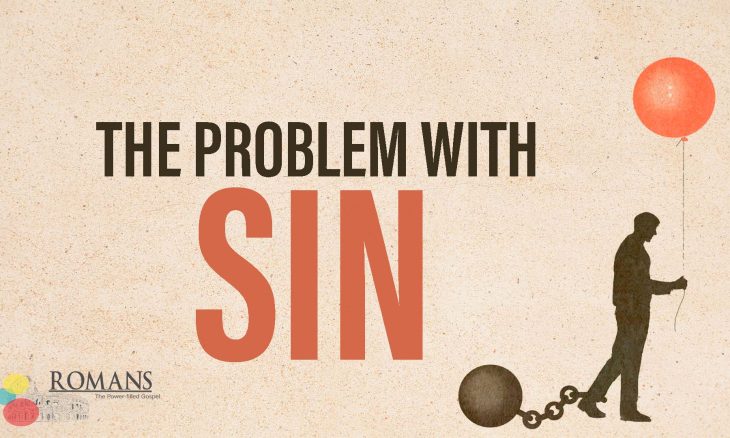Have you ever had a smoke alarm go off at home—not because of a fire, but because of burnt toast or steam from the shower?
At first, it’s alarming. But after a while, if it keeps going off for the wrong reasons, we get used to it. Some of us even take the battery out or tape over it so we can cook in peace.
But imagine this: one night, the smoke alarm goes off again—but this time, it’s not steam or toast. It’s an actual fire. But you’ve trained yourself to ignore the sound. What once was a warning has become background noise—and now it’s too late.
We live in a world where the alarms are going off all around us—warning us that something is wrong.
- But we’ve learned to tune them out.
- We don’t take sin seriously anymore.
- We laugh at it, normalize it, or explain it away.
- But just like a fire ignored, sin consumes—slowly, then suddenly.
Romans 1 is like a divine smoke alarm—it shows us what happens when we stop listening to the truth of God and exchange it for a lie. The consequences are real….
Sin is not just breaking rules—it’s turning away from the God who made us, which leads to distortion, darkness, and destruction. But God’s grace is our rescue.
We live in a culture that doesn’t take sin seriously. In fact, most people wouldn’t even call it that.
- “Mistake,” maybe.
- “Poor judgment,” sure.
- But sin?
That feels a little too heavy, too outdated, too religious.
But if we want to be honest about the state of our world—and more importantly, the state of our hearts—we have to ask the question:
What is the problem with sin?
The Apostle Paul doesn’t ease into doctrinal teaching in Romans. He dives in the deep end and gives us a hard but necessary truth.
- Before we can understand the beauty of grace, we have to confront the depth of our problem.
- Not to wallow in guilt—or to play the blame game – but to wake up to reality.
Romans 1:19–20
“For what can be known about God is plain to them… For his invisible attributes… have been clearly perceived… So they are without excuse.”
I. Sin Begins with Suppressing the Truth
God has made Himself known. Not just in Scripture—
- but in the sky,
- the sea,
- the soil,
- the stars.
- The beauty, order, and power of the created world shout the reality of a Creator.
The problem isn’t that people don’t have enough evidence of God—it’s that we push it down. We suppress it.
- Like trying to hold a beach ball underwater, we use our minds and lives to keep the truth buried.
Imagine walking into a house with the smell of fresh cookies. You might not see the baker, but you know someone’s been there.
- Creation is like that—it’s the aroma of God’s presence.
- Denying it is like walking into the kitchen, smelling the goodies, and insisting no one exists.
Sin doesn’t start with bad behavior. It starts with bad belief—when we ignore what we know about God and build our lives as if He’s not there.
Romans 1:21–23
“Although they knew God, they did not honor him as God… but became futile in their thinking… and exchanged the glory of the immortal God for images…”
II. Sin Replaces Worship with Idolatry
We are worshiping beings. We will worship something.
The tragedy Paul describes is that instead of worshiping the Creator, we settle for created things—
- money,
- sex,
- power,
- approval,
- self.
We don’t stop worshiping—we just redirect it.
C.S. Lewis once Wrote:
We are half-hearted creatures, fooling about with drink and sex and ambition when infinite joy is offered us, like an ignorant child who wants to go on making mud pies in a slum because he cannot imagine what is meant by the offer of a holiday at the sea. We are far too easily pleased. wrote
That’s what idolatry is—settling for mud when we were made for glory.
Ask yourself this question this morning…… What are we worshiping?
What do I look to for security, identity, joy?
Sin is always trying to put something lesser in a place where only God belongs.
Romans 1:24–27
“Therefore God gave them up in the lusts of their hearts…”
III. God Will Let Us Have What We Want
This is one of the most sobering phrases in the Bible: God gave them up.
Not that He struck them down—but He stepped back. He let them follow their desires to the end.
We often think of judgment as something God does to us. But often, judgment is when God simply lets go—when He stops restraining us and lets us chase what we think we want.
VS 26
God gave them over to shameful lusts. Even their women exchanged natural sexual relations for unnatural ones. 27 In the same way the men also abandoned natural relations with women and were inflamed with lust for one another. Men committed shameful acts with other men, and received in themselves the due penalty for their error.
Paul mentions sexual sin here—not to single it out as the worst—but as a visible symptom of the deeper problem with sin:
- distorted desires,
- broken identity,
- and separation from the Creator.
When Kelsey was a child. She had an obsession with electrical outlets, constantly or vigilant to keep her from putting something in one on one particular occasion however, we went to go and help with a remodeling job, and as often as the case when a home is in repair, one of the covers to the outlets have been removed even though she heard a dozen times not to touch the human nature within her called out and we heard an audible pop from the other room, followed by a startled and painful cry
God doesn’t force Himself on us.
- He allows us to walk away.
- But the further we go from Him, the more twisted our desires and thinking become.
This is not about rules—it’s about what happens when we unplug from the Source of life.
Romans 1:28–32
“They have become filled with every kind of wickedness, evil, greed and depravity. They are full of envy, murder, strife, deceit and malice. They are gossips,30 slanderers, God-haters, insolent, arrogant and boastful; they invent ways of doing evil; they disobey their parents; 31 they have no understanding, no fidelity, no love, no mercy. 32 Although they know God’s righteous decree that those who do such things deserve death, they not only continue to do these very things but also approve of those who practice them.
IV. Sin Corrupts Every Corner of Life
Paul ends this section with a devastating list—not just “big sins” but everyday patterns: envy, gossip, arrogance, disobedience, lack of mercy.
Sin doesn’t stay contained.
- It leaks into relationships, systems, and societies.
- And when sin becomes normal—approved, celebrated—the darkness deepens.
Sin is like mold in a house. At first, it’s in one corner. Then it’s in the walls.
Eventually, it takes over the air you breathe.
We’re not just victims of sin—we’re participants.
- When we call evil good,
- when we laugh at what God calls harmful,
- when we cheer for what leads to death,
- we reveal how far we’ve fallen.
Conclusion:
So What Is the Problem with Sin?
It’s not just breaking God’s rules. It’s breaking relationship with the God who made us.
It starts with:
- Suppressing truth,
- Turns to idolatry,
- Forces God to let us go,
- Ends in wide-spread corruption.
But this is not where the story ends.
Paul shows us the problem with sin in chapter 1 so we will long for the power of salvation in chapter 3, chapter 5, and ultimately the cross.
“While we were still sinners, Christ died for us.” (Romans 5:8)
You can’t appreciate the cure until you understand the disease.
In the early 20th century, polio was one of the most feared diseases in the world. It struck without warning, mostly affecting children. One day a child would be running and playing; the next, they could be paralyzed—sometimes permanently. In the worst cases, it even took their ability to breathe. Hospitals filled with rows of iron lungs—massive machines just to keep patients alive.
The disease was devastating, not just physically, but emotionally and socially. Parents lived in fear. Communities shut down swimming pools and theaters during outbreaks. There was no cure.
And then, almost unbelievably, a vaccine was developed—just a few drops on a sugar cube. That was it. A small, simple, painless solution that saved millions of lives. What once brought paralysis and fear could now be stopped by something so small, so accessible.
Sin is a lot like that disease. It creeps in, often unnoticed at first. It looks different for everyone, but its effects are always the same—
- separation,
- distortion,
- and ultimately, death.
Left unchecked, it can paralyze our hearts and relationships.
But here’s the wonder of the gospel: God doesn’t leave us in the grip of sin. Through Jesus, He provides the cure—grace offered not through anything we earn but by simply receiving Him through faith. What sin wrecks, grace restores.















